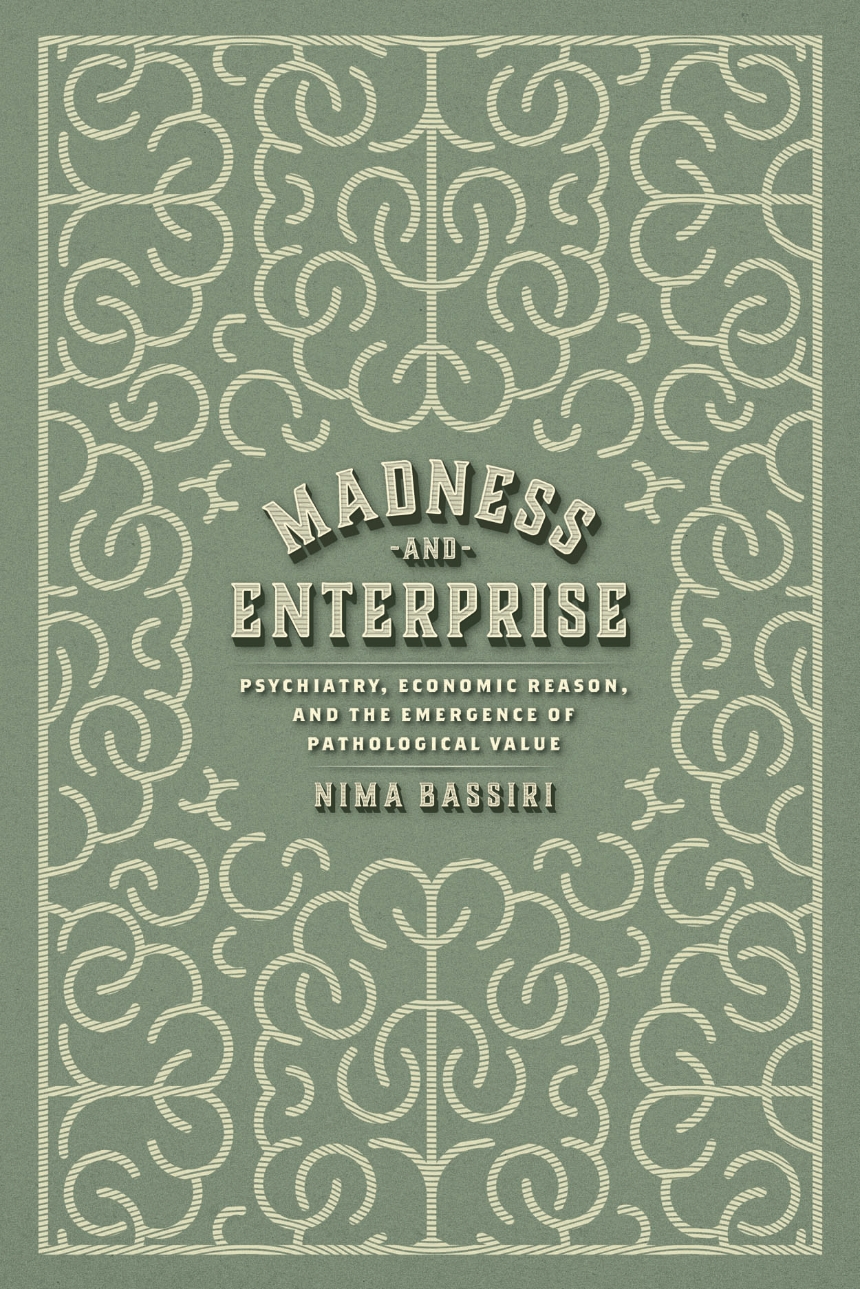Madness and Enterprise
Psychiatry, Economic Reason, and the Emergence of Pathological Value
9780226830896
9780226830872
9780226830889
Madness and Enterprise
Psychiatry, Economic Reason, and the Emergence of Pathological Value
Uncovers a powerful relationship between pathology and money: beginning in the nineteenth century, the severity of mental illness was measured against a patient’s economic productivity.
Madness and Enterprise reveals the economic norms embedded within psychiatric thinking about mental illness in the North Atlantic world. Over the course of the nineteenth century, various forms of madness were subjected to a style of psychiatric reasoning that was preoccupied with money. Psychiatrists across Western Europe and the United States attributed financial and even moral value to an array of pathological conditions, such that some mental disorders were seen as financial assets and others as economic liabilities. By turning to economic conduct and asking whether potential patients appeared capable of managing their financial affairs or even generating wealth, psychiatrists could often bypass diagnostic uncertainties about a person’s mental state.
Through an exploration of the intertwined histories of psychiatry and economic thought, Nima Bassiri shows how this relationship transformed the very idea of value in the modern North Atlantic, as the most common forms of social valuation—moral value, medical value, and economic value—were rendered equivalent and interchangeable. If what was good and what was healthy were increasingly conflated with what was remunerative (and vice versa), then a conceptual space opened through which madness itself could be converted into an economic form and subsequently redeemed—and even revered.
Madness and Enterprise reveals the economic norms embedded within psychiatric thinking about mental illness in the North Atlantic world. Over the course of the nineteenth century, various forms of madness were subjected to a style of psychiatric reasoning that was preoccupied with money. Psychiatrists across Western Europe and the United States attributed financial and even moral value to an array of pathological conditions, such that some mental disorders were seen as financial assets and others as economic liabilities. By turning to economic conduct and asking whether potential patients appeared capable of managing their financial affairs or even generating wealth, psychiatrists could often bypass diagnostic uncertainties about a person’s mental state.
Through an exploration of the intertwined histories of psychiatry and economic thought, Nima Bassiri shows how this relationship transformed the very idea of value in the modern North Atlantic, as the most common forms of social valuation—moral value, medical value, and economic value—were rendered equivalent and interchangeable. If what was good and what was healthy were increasingly conflated with what was remunerative (and vice versa), then a conceptual space opened through which madness itself could be converted into an economic form and subsequently redeemed—and even revered.
344 pages | 6 halftones | 6 x 9 | © 2024
Economics and Business: Economics--History
History: History of Ideas
Reviews
Table of Contents
Introduction
Chapter 1: Boundaries of the Legible
Chapter 2: What Conduct Reveals
Chapter 3: From Disorders of Enterprise to Entrepreneurial Madness
Chapter 4: The Aphasic’s Will, or Dispensations for the Propertied
Chapter 5: The Pathology of Work
Chapter 6: Appraising Eccentricity
Conclusion: The Economic Reason of Madness
Acknowledgments
Notes
Index
Chapter 1: Boundaries of the Legible
Chapter 2: What Conduct Reveals
Chapter 3: From Disorders of Enterprise to Entrepreneurial Madness
Chapter 4: The Aphasic’s Will, or Dispensations for the Propertied
Chapter 5: The Pathology of Work
Chapter 6: Appraising Eccentricity
Conclusion: The Economic Reason of Madness
Acknowledgments
Notes
Index
